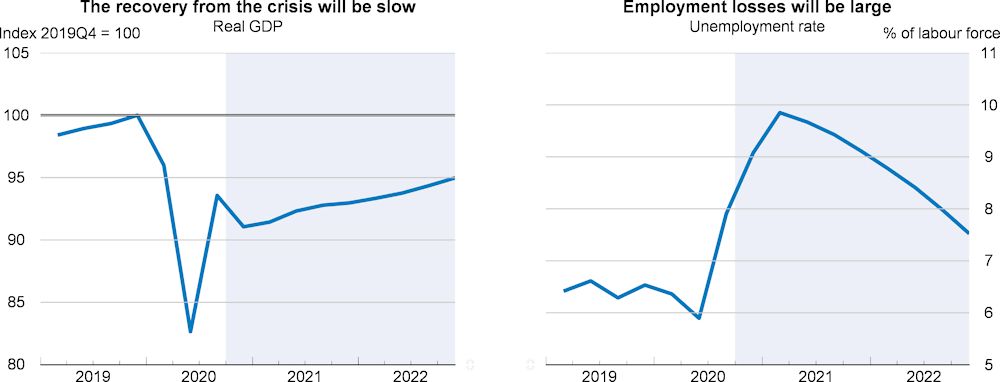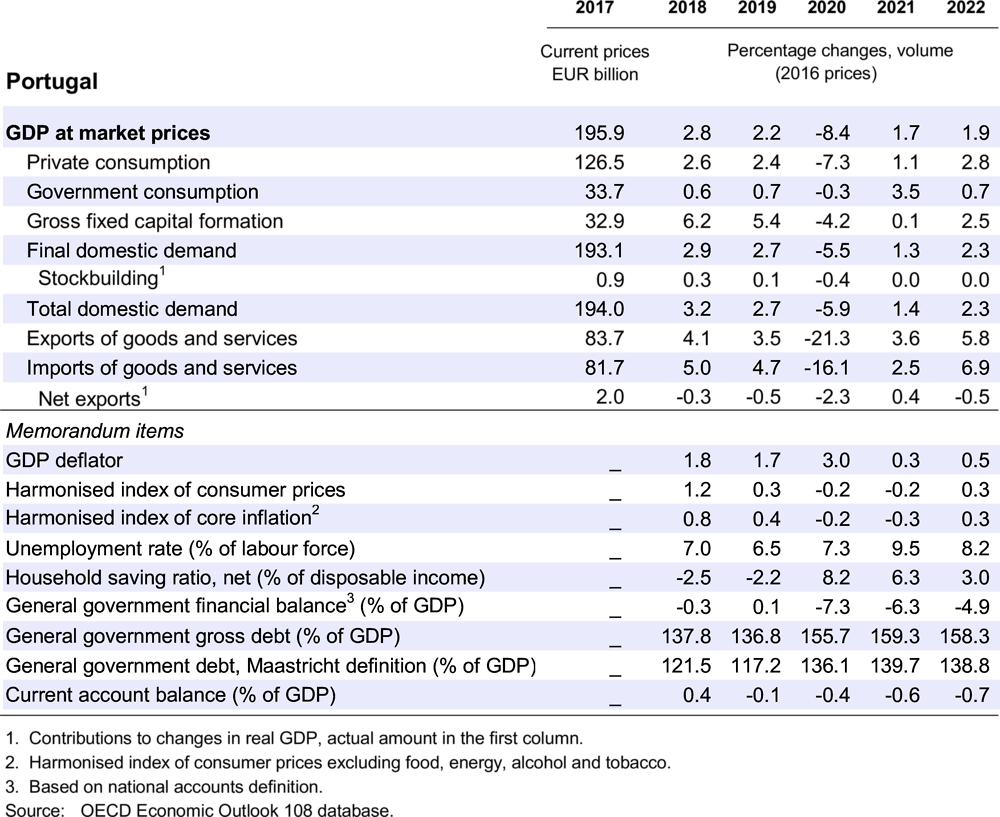GDP is set to fall by 8.4% in 2020 before recovering by 1.7% in 2021 and 1.9% in 2022. The pick-up in 2021 will mainly be supported by pent-up demand. Afterwards, a broader recovery is projected to unfold, notably in the most affected sectors such as tourism and hospitality, under the assumption of an improved sanitary situation as an effective vaccine is deployed. The unemployment rate will peak in 2021 and remain above its pre-crisis level through the end of 2022. Public debt (Maastricht definition) is expected to reach 139% of GDP in 2022.
The fiscal deficit is projected to decrease in 2021-22 as the economy rebounds and some discretionary fiscal support is withdrawn. To avoid derailing the recovery, a return to fiscal prudence should take place only after the recovery is firmly underway. Scaling up lifelong learning programmes and strengthening work‑based learning can facilitate reallocation of workers in the economy. Promoting market-based non‑debt instruments to over-leveraged but viable firms would fasten their growth potential.


